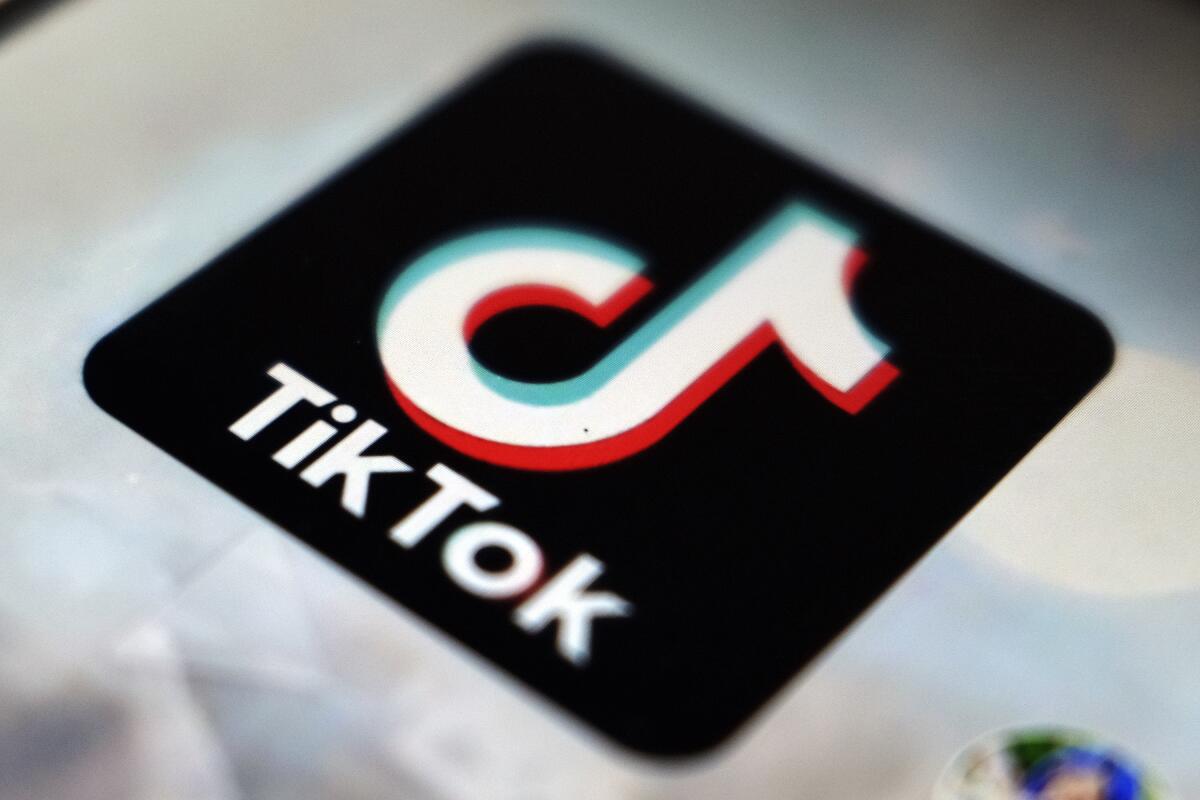TikTok sues U.S. government, saying ban violates 1st Amendment

TikTok, the popular social video app, sued the U.S. government on Tuesday, saying the country’s new law that could ban the app violates 1st Amendment rights to free speech.
President Biden last month signed into law a bill that would effectively ban the service in the U.S. if its Chinese owner, ByteDance, does not sell TikTok’s U.S. operations. Legislators backing the law said a ban or sale was necessary to address national security concerns posed by the app’s ties to China.
After President Biden signed a bill that could ban TikTok in the U.S., experts say the economic ramifications could be significant.
“There is no question: the Act will force a shutdown of TikTok by January 19, 2025, silencing the 170 million Americans who use the platform to communicate in ways that cannot be replicated elsewhere,” TikTok and ByteDance said in their filing, referring to the new law.
The Department of Justice declined to comment.
TikTok and ByteDance said in the court filing that it had been trying since 2019 to work with the U.S. government’s Committee on Foreign Investment to address security concerns. Under the terms of a deal spelled out in a 90-page draft agreement, data collected about Tik Tok users in the U.S. was to be handled by Oracle, the U.S. tech giant. The proposed agreement also called for Oracle to inspect TikTok’s programming code for vulnerabilities and for the platform’s content to be subject to independent monitoring, according to the filing in the U.S. Court of Appeals for the D.C. circuit.
If TikTok did not comply, the draft agreement called for the company to be subjected to financial penalties and also included the possibility of suspending TikTok’s operations in the U.S., the businesses said.
“The terms of that negotiated package are far less restrictive than an outright ban,” ByteDance and TikTok said in its filing.
But TikTok and ByteDance said it is unclear why the committee ultimately determined the proposed agreement was insufficient and in March 2023 “insisted that ByteDance would be required to divest the U.S. TikTok business,” according to the filing.
Congress passed a bill that could ban TikTok. What could happen next, and who might buy the social media platform?
TikTok and ByteDance also noted the new law “offers no support for the idea” that TikTok’s Chinese ownership poses national security risks.
“Speculative risk of harm is simply not enough when First Amendment values are at stake,” the businesses said in their filing.
TikTok is still moving forward with addressing some of the security concerns by partnering with Oracle “on the migration of the U.S. platform and protected U.S. user data to Oracle’s cloud environment,” TikTok and ByteDance said in the filing.
As part of their lawsuit, TikTok and ByteDance are seeking a court order blocking the government from enforcing the new law.
“These are going to be difficult issues to thrash out,” said Carl Tobias, a law professor at University of Richmond.
Tobias said one of the challenges for TikTok and ByteDance is the government’s national security argument. “Federal courts tend to be pretty deferential to those kinds of assertions, especially from Congress,” Tobias said.
Other legal experts said that they believe TikTok has a strong case. Douglas Mirell, a partner at Greenberg Glusker, said that he suspects the government is going to have a significant burden of trying to prove the law is not unconstitutional under the 1st Amendment.
“If I had to choose which side of the case to be on, I would be on TikTok’s side,” said Mirell, who focuses on 1st Amendment issues.
TikTok is a hugely popular app, with more than 1 billion users worldwide and is a key part of the video creator ecosystem. Small businesses rely on TikTok to tout their products and video creators have moved to L.A. to be closer to its Culver City office. The company employs roughly 500 people in Culver City, according to city data.
Artists from Universal Music Group, including Taylor Swift, Bad Bunny and Billie Eilish, will return to TikTok after the two parties struck an agreement.
In its filing, ByteDance argued that carving out TikTok’s U.S. operations from the rest of the company would not be feasible, in part because of the borderless nature of the social video app that allows for international content to be mixed in with U.S. videos.
“Such a limited pool of content, in turn, would dramatically undermine the value and viability of the U.S. TikTok business,” the filing said.
TikTok’s massive popularity — and value — is due in large part to the algorithm its developers designed that seamlessly feeds content to users based on what they have watched previously. TikTok and ByteDance said in its filing, the “Chinese government has made clear that it would not permit a divestment of the recommendation engine that is a key to the success of TikTok in the United States.”
Still, analysts said have predicted that some companies and private equity firms would be interested in buying TikTok even if the coveted algorithm wasn’t part of the deal. Potential buyers could include Oracle and Microsoft, said Daniel Ives, a managing director at Wedbush Securities in an interview with the Times last month.
More to Read
Inside the business of entertainment
The Wide Shot brings you news, analysis and insights on everything from streaming wars to production — and what it all means for the future.
You may occasionally receive promotional content from the Los Angeles Times.













